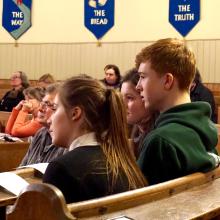
Well over a hundred people filled Broughton St Mary’s Parish Church last night at a hustings for the Scottish Parliamentary election on 5 May.
On the podium were nine candidates for the Edinburgh Northern & Leith constituency plus a representative sample of those standing in the Lothian regional list. Solidarity had been invited but did not reply or attend.
There were no incumbents on view, either because their parties were already represented here, or – in the case of Malcolm Chisholm – they had stood down.
All those candidates attending had earlier provided thumbnail sketches of themselves and their political views. These were summarised on sheets distributed among the audience, and are available in slightly longer form on our Breaking news page over the last week.
Inviting questions and managing the proceedings was Harald Tobermann (HT), vice-chair of Leith Central Community Council. He promised to be brisk, bouncy and strict, then bounced briskly to as strict a timetable as humanly possible all evening.
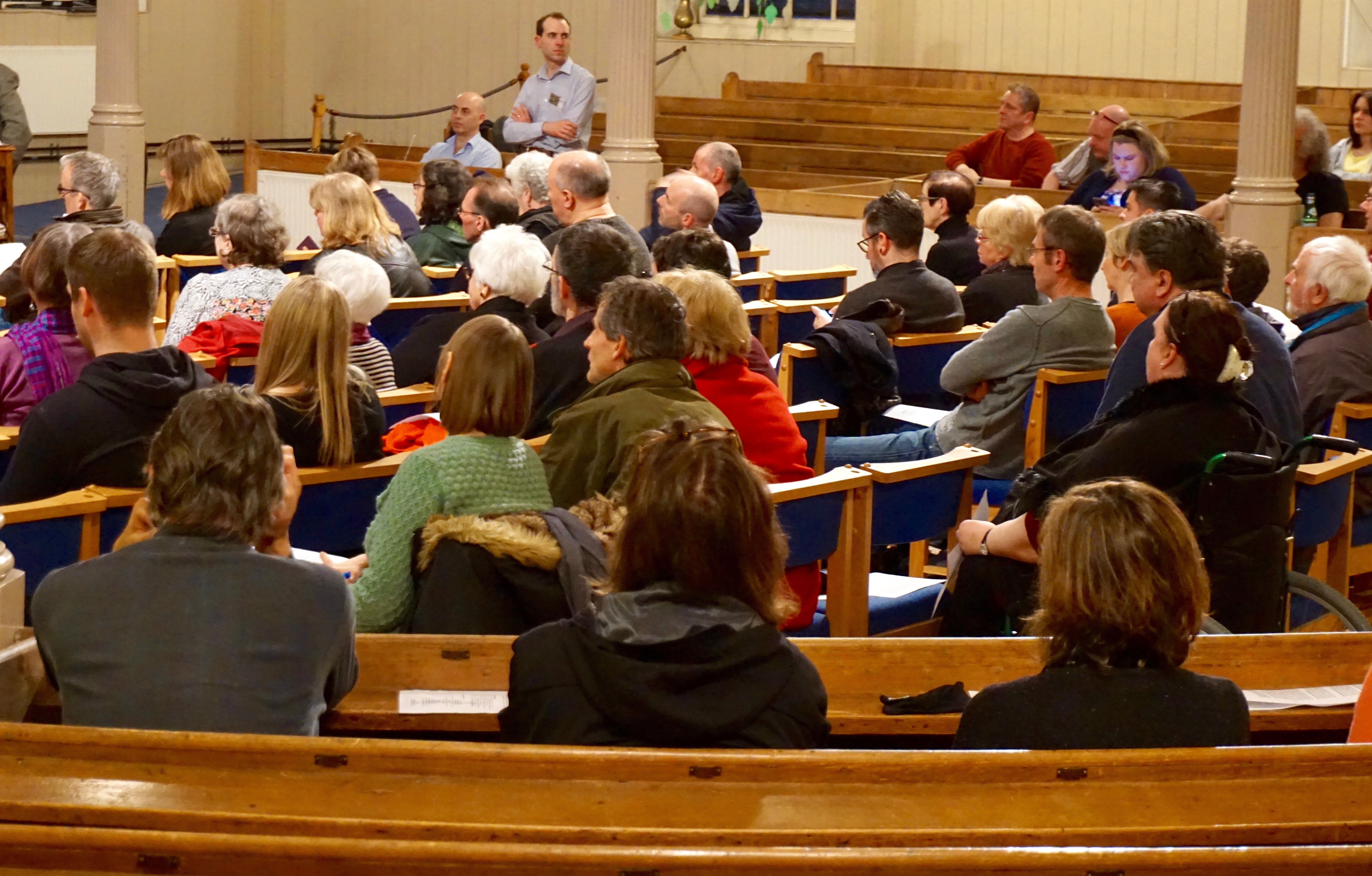
A few excuses and some things to look forward to
The following notes were taken at speed, in poor light, amid the assorted coughs, harrumphs and furtive rustlings of a Spurtleshire audience full of the joys of Spring viruses. It is therefore possible that some answers have been misheard or misreported here. If candidates wish to email us corrections, we'll certainly take them onboard.
Several readers sent in questions in advance for which there was no time or opportunity on the evening. We'll circulate these to all the candidates, and publish their responses in due course.
A more subjective and impressionistic account of the evening and comparative performances will appear in our printed Issue 251, published on 1 May.—AM
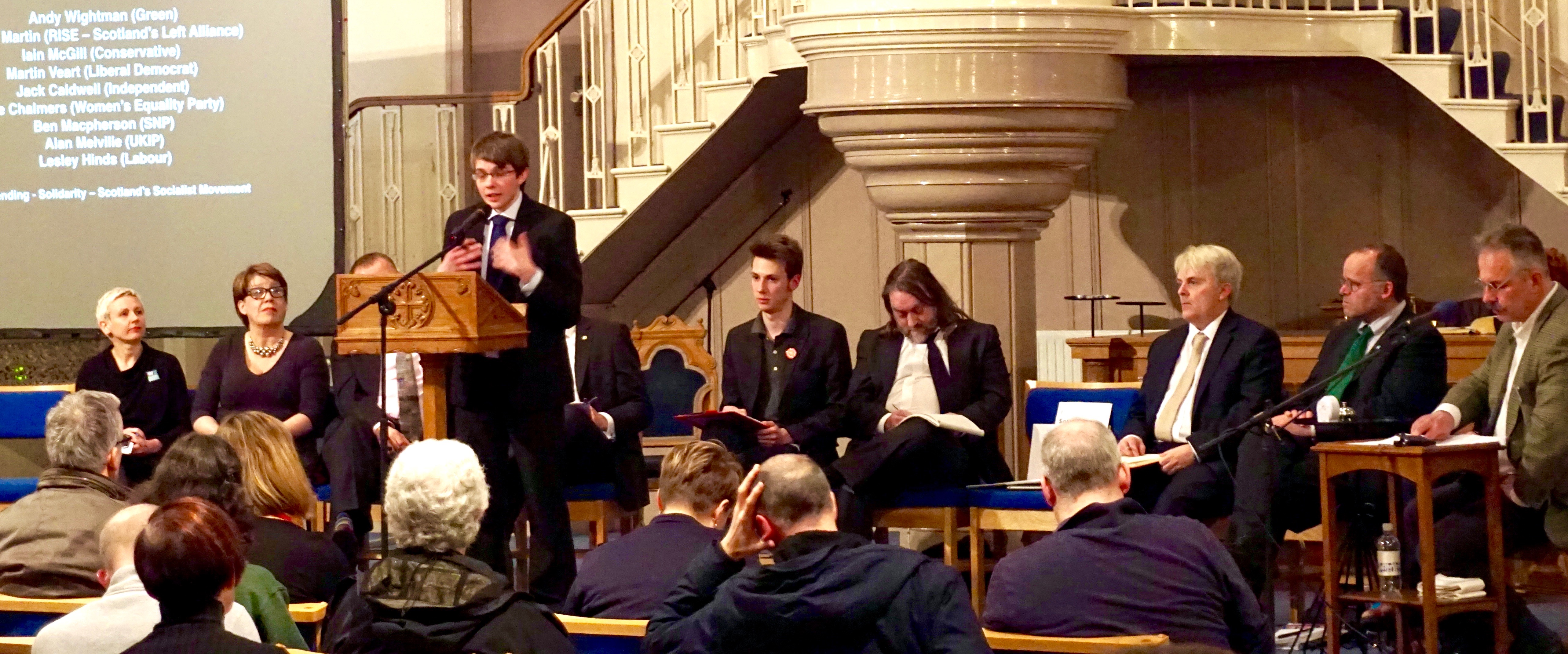
*****
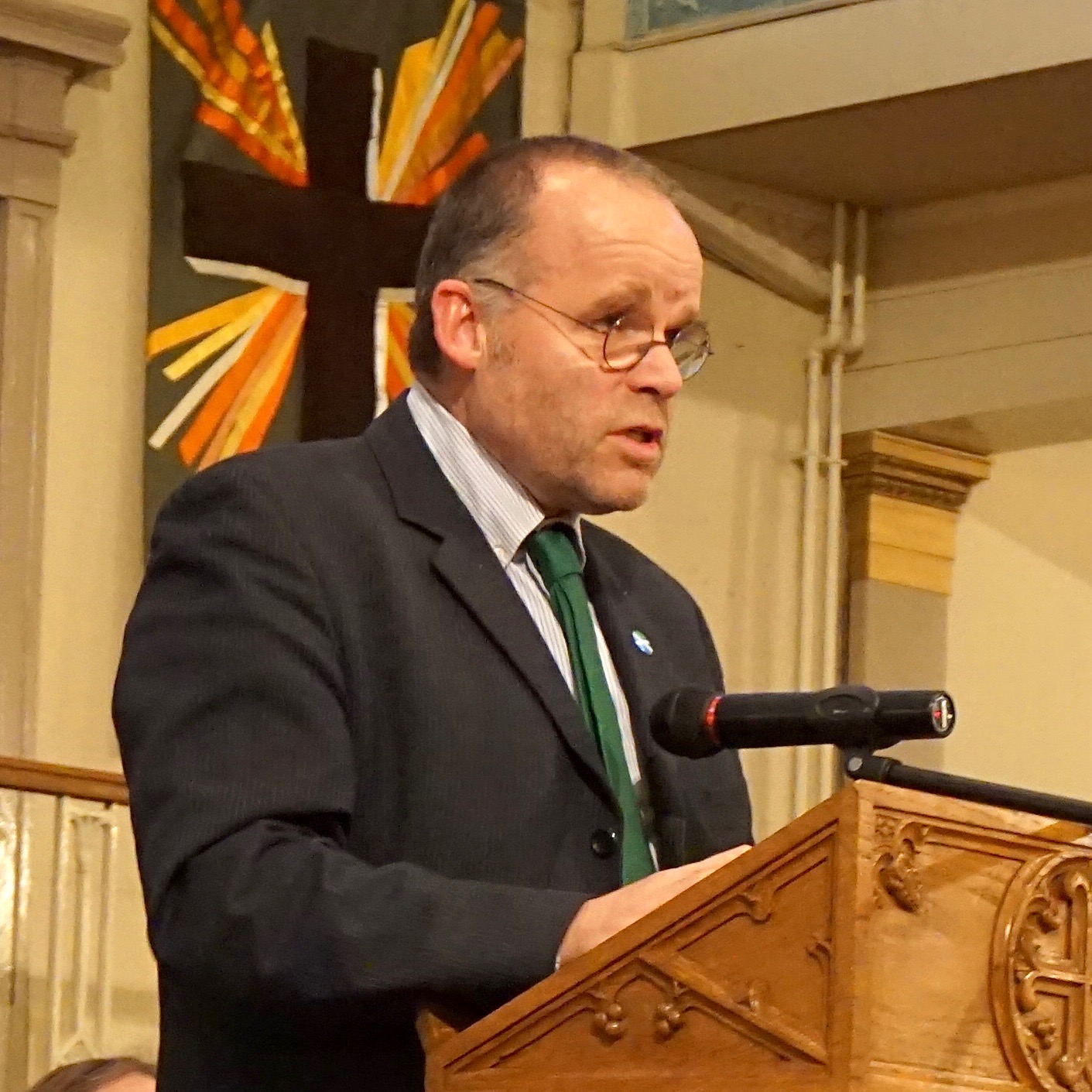
Andy Wightman (Green, AW): We would make income tax progressive: decreasing it for those earning under £26k, increasing it modestly for those over £26k, increasing it more for those earning over £150k.
Lesley Hinds (Labour, LH): We would put 1p on income tax, and raise the rate for those earning over £150k. We’d use the money to prioritise education and public services. We’d continue to fight the cuts from Westminster.
Lee Chalmers (Women’s Equality Party): We’d initiate gender analysis of any tax changes proposed.
Calum Martin (RISE – Scotland’s Left Alliance, CM): Yes. We;d set a 60 percent tax for top earners. The rich should pay their fair share.
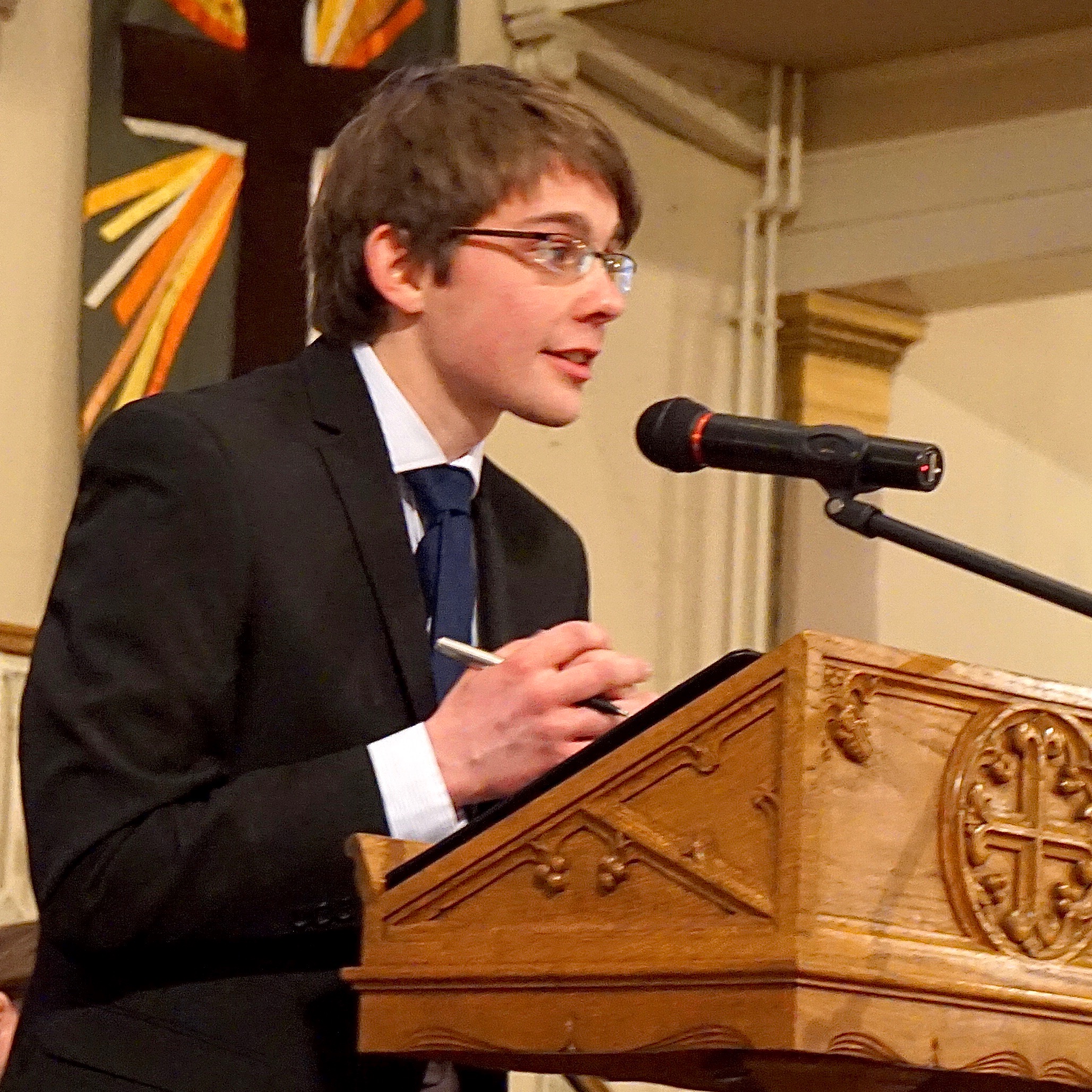
Iain McGill (Conservative, IM): No, nae, never! Raising taxes is not an attractive offer to the public. Would be disastrous for Scotland to have a higher rate of taxation than the rest of the UK.
Alan Melville (UK Independence Party, AM): We already pay enough. In the long term we should try to reduce taxation. The real problem is the incompetent politicians who waste our tax once it’s been collected.
Martin Veart (Liberal Democrat, MV): We would use a 1p rise in tax to prioritise education, and reverse huge cuts to education at all levels. Investing in young people is the best use for that money.
Ben Macpherson (Scottish National Party, BM): We have a responsible and progressive tax policy with no rise for basic-rate taxpayers but an increase for higher-rate ones. We want a fairer society, and to maintain a good environment for business.
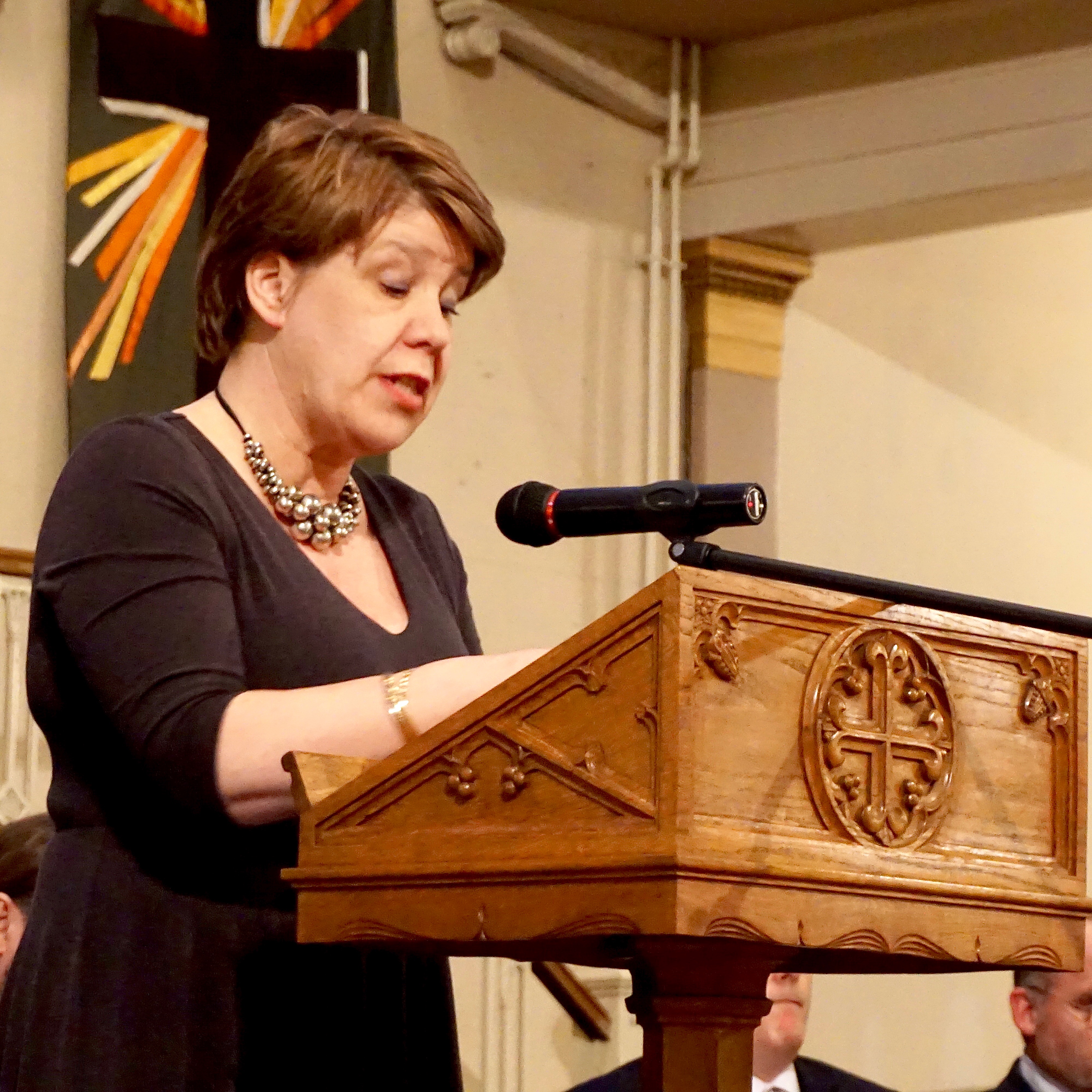
LH: NHS, education, and local government.
AM: Tempting to say education, but actually nowhere. I’d use it to pay down debts.
BM: We’re already prioritising the NHS, so I’ll say education. But we’d also let local authorities vary Council Tax by up to 3 per cent.
LC: Education, because it’s key to how boys and girls can maximise non-stereotypically gendered careers and potential. I’d also focus on improving sex education to promote mutual respect.
AW: I’d hand the money down to local authorities and encourage them to spend it on education.
IM: Health services and social care, with the particular aim of improving mental health services and helping rough sleepers.
MV: I want to return democracy to the local level. Start by reviewing local taxation and allowing more local-level decisions on how/where to spend.
CM: By giving the money to local authorities to build new council housing and improve the existing estate, we would also achieve huge improvements in health.
JC: The NHS is a very attractive option, but I’d go for giving local authorities the money to improve services – particularly education, children and families.
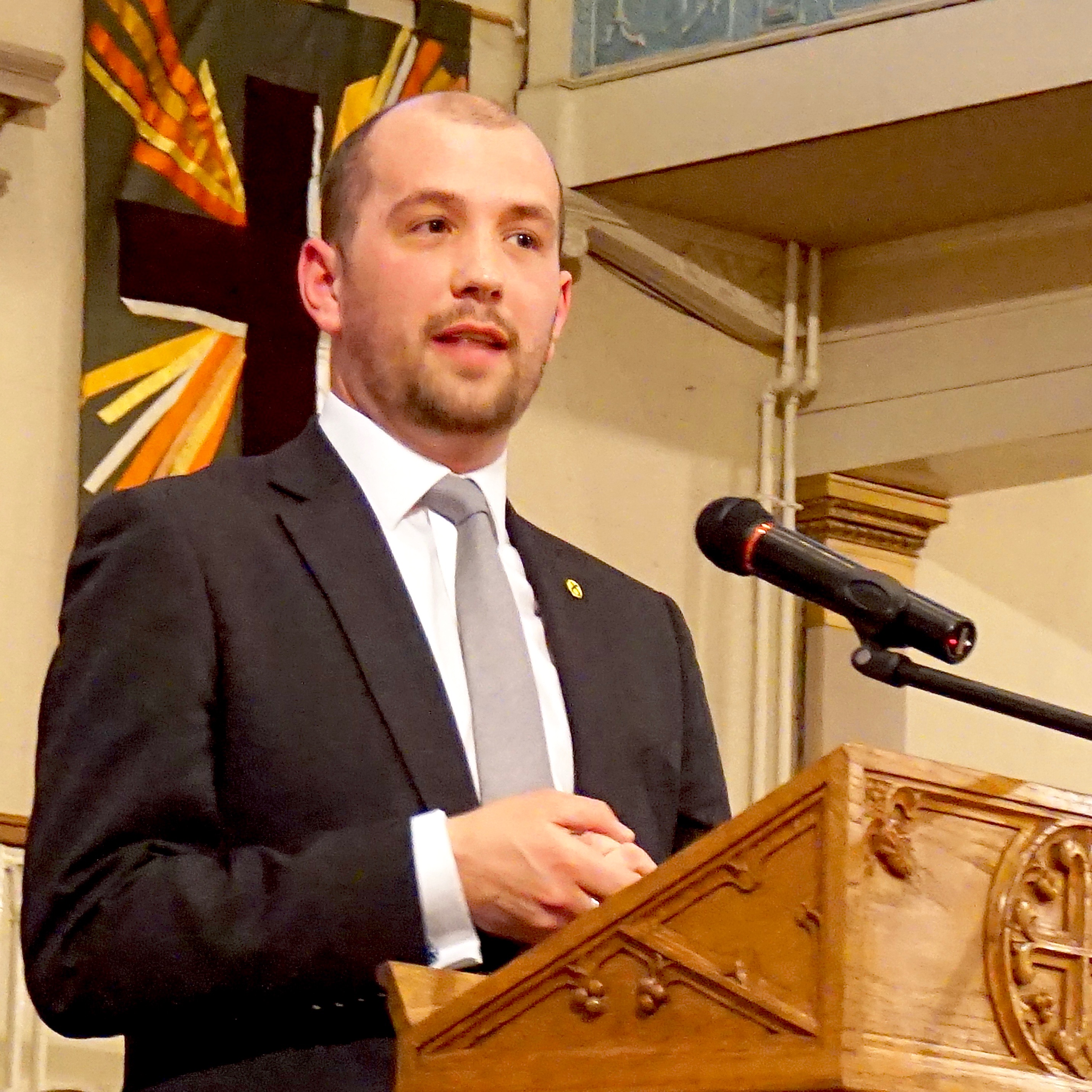
BM: I’m in favour of constructive politics, not knocking others. My bill would increase local authorities’ powers to tax unused and derelict land, and the SNP has committed to consult on this if re-elected. It would prompt them to develop affordable housing. I’d also like a bill which insisted on higher building standards in the private sector, for example matching those higher ones in the social-housing sector.
JC: As outlined in my written summary, I’d seek to improve mental health services.
AM: ‘No Freeman shall be taken, or imprisoned, or be disseised of his Freehold, or Liberties, or free Customs, or be outlawed, or exiled, or any otherwise destroyed; nor will we pass upon him, nor condemn him, but by lawful Judgment of his Peers, or by the Law of the Land’: Magna Carta, Clause 29.
AW: My bill would allow local authorities (like those in Germany) to buy undeveloped land at the same price it had before gaining planning permission. That way councils could build new housing without running up crippling debts in the process.
HT: That’s quite enough about the Germans. [Laughter from audience at/with German Chair]
LC: My bill would counteract disrespectful and damaging treatment of women in and by the media. [Gentle applause]
CM: I would scrap the Council Tax and replace it with a local income tax. The rich must pay their fair share.
LH: My bill would be aimed at reducing inequality. (There’s a 10-year gap in life expectancy between the richest and poorest in this constituency.) I would organise community consultations to set priorities, and institute a Living Wage to tackle poverty. [Loud applause]
MV: Having lived in Ireland, Norway, Wales, England and now Scotland, I can see that housing is a common problem. I would work with anyone to produce a bill that addressed housing quality and housing warmth and related health issues.
IM: Interesting trivia fact: first ever private member’s bill in the Scottish Parliament was about dog fouling. My bill would address long-term solutions for rough sleeping.
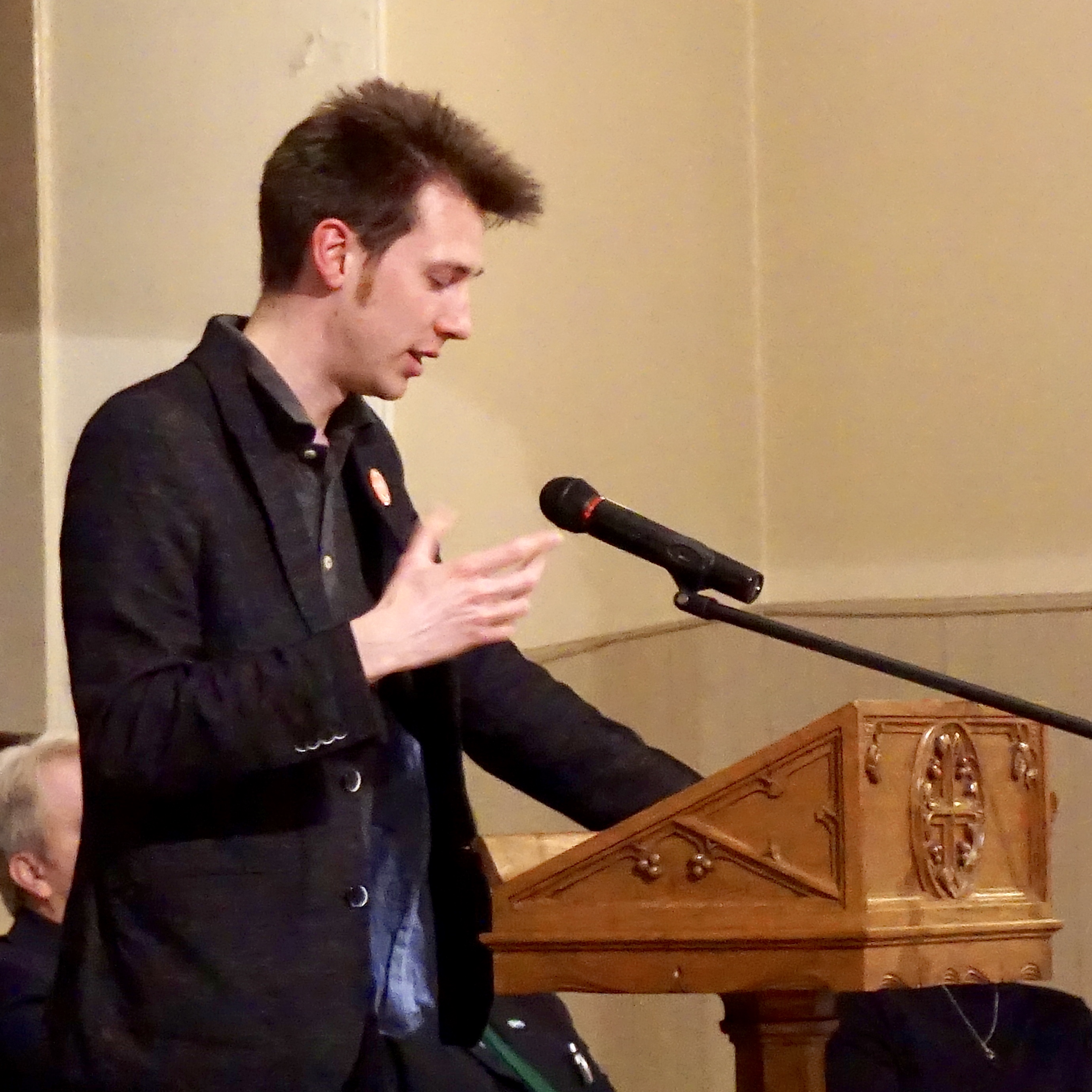
CM: I’d restore Police Scotland to local control. Scotland is very diverse, and policing should reflect that.
JC: We need to fund community policing appropriately. Improve the current ‘us versus them’ approach. Build trust.
IM: The sight of armed police issuing traffic tickets is not good. Am very in favour of local policing, e.g. Lothian and Borders anti-burglary team (which was scrapped under Police Scotland, with bad consequences). Policing of football fans in Scotland is horrendous.
AM: Police Scotland has been a disaster. We need to restore local priorities. Depoliticise the top echelons to avoid future mistakes like the Offensive Behaviour and Threatening Behaviour Act. Am very against any future integration of Police Scotland with British Transport Police.
LM: Personal experience of Lothian & Borders Police Board. Its replacement is too broad and remote, and has lost much local expertise and knowledge. Need to reverse disastrous loss of support services within Police Scotland, whereby experienced and well-paid officers are now doing backroom jobs. [Applause]
LC: I don’t know, and I’m not going to make up answers on the spot. Would concentrate on gender equality implications of any reforms.
AW: We benefit from a centralised, national police force’s specialisms in areas like serious and organised crime, so long as local and very accountable forces are encouraged to cooperate in parallel (as in Norway).
MV: I’m against Police Scotland and its entirely foreseeable flaws. It lacks accountability. In proceeding against Edinburgh saunas, it used condoms as evidence but effectively criminalised measures to ensure sexual health. Agree with AW on effectiveness of the Norwegian approach.
BM: Regional police forces and fire brigades were unified, with Labour’s support, to cut costs. However, I accept that Police Scotland needs to work harder on local accountability. Having said that, under the SNP, crime in Scotland is at a 41-year low and crime in Edinburgh Northern & Leith has reduced by 25 per cent. [Applause]
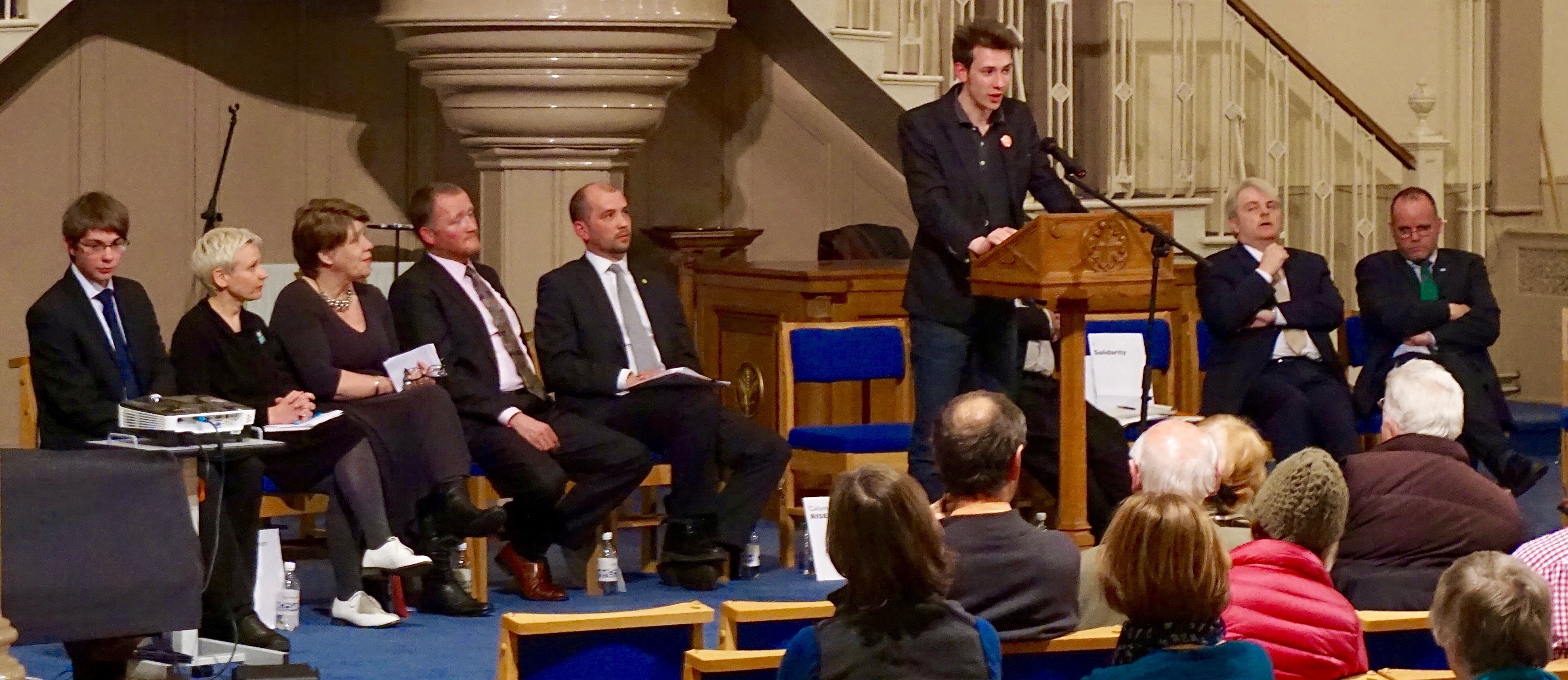
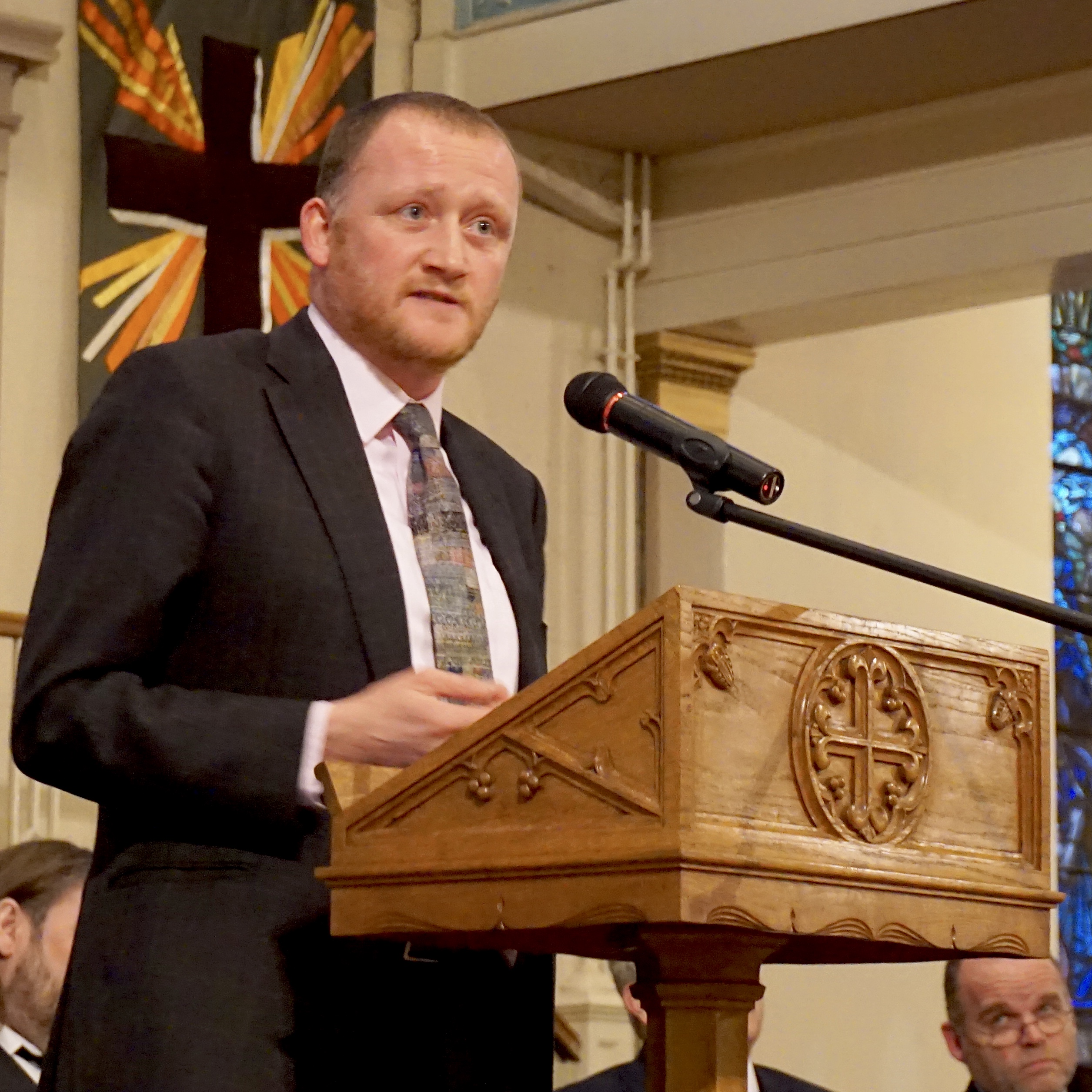
IM: The Minimum Wage is the right thing to do. However, in my business, I pay above that rate and would encourage other businesses to do so, too.
AW: Scottish Parliament does not have the power to change this. But I am in favour of scrapping the age criterion.
LC: There’s still no equality years after the Equal Pay Act. Makes no sense at all. We want equal pay for equal work.
JC: Not an issue for the Scottish Parliament under devolved powers, but age-25 threshold is ridiculous and arbitrary. And I say that as a 23-year-old. [Laughter from audience]. All Scottish Government workers should receive the Living Wage.
BM: This is a Conservative measure over which we tried and failed to get power during discussions with the Smith Commission. The SNP has delivered a real living wage where it can, in Scottish Government etc., and encouraged private-sector exemplars to pay better, but Holyrood cannot force the issue in the private sector as does not have the power.
MV: Our policy is to pay the Minimum Wage to all public-sector employees.
LH: The age criterion is wrong. But to say there’s nothing we can do about it is a mistake. We should be challenging our MPs at Westminster to do something about it. [Applause]
CM: The situation is scandalous. Rate of pay should be £10 per hour regardless of age. We should take to the streets and campaign and complain.
HT: Hmm. For the first time this evening I see we have some consensus. Hmm. That’s slightly suspicious. [Laughter]
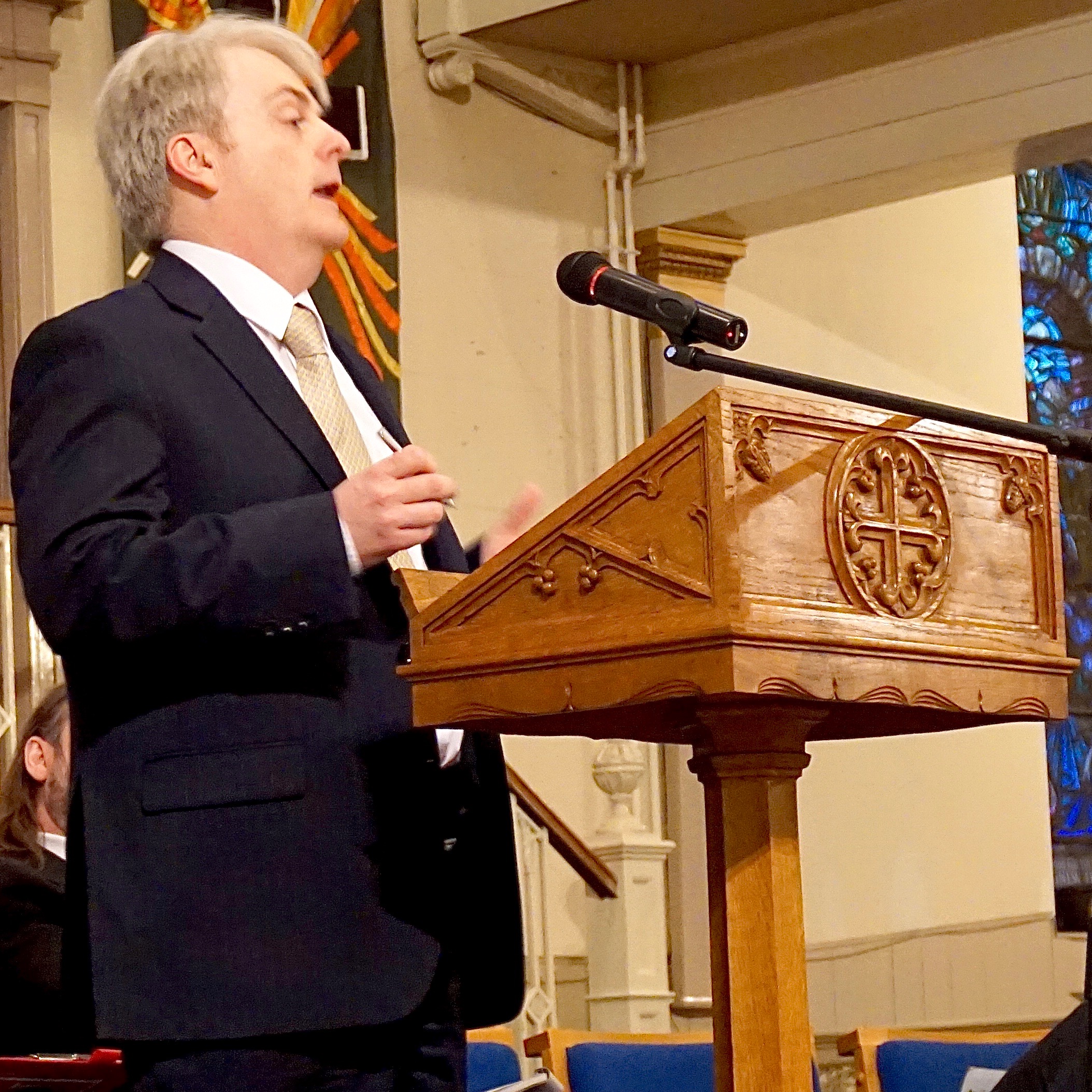
MV: [Some audience laughter before he began] We tried to keep these out of Scotland. Four-year degree students here need help to find work in the summer so that they don’t drop out for financial reasons.
BM: SNP has proud record on this. We say access to university should be based on ability to learn, not ability to pay. [Applause]
LH: We should look at ways to help poorer students, using bursaries. Need to address the problem of debt.
AW: In favour of free higher education. Students from poorer backgrounds are still not getting into university.
AM: I’m a former President of the Napier Student Association, but am no longer an expert on these issues. I don’t want folk to pay tuition fees, but the current situation is not affordable. There are no easy answers.
CM: Education is key to the future of our society. Tuition fees are a massive barrier and it’s vital that they remain scrapped. Don’t see why postgraduates should have to pay them. We also need to better support further-education bursaries.
LC: Women’s Equality Party has no official line on this. Personally, I am against tuition fees and would not have managed to go to university without a free education.
IM: Current situation with tuition fees has come at a high price – the loss of 140k further-education places. It’s unpardonable folly. I think system south of border is fairer, where graduates contribute towards cost of education once they’re earning well. I feel passionately about this.
JC: I’m in favour of free education, but my higher priority is that everyone has a place on a course they want at college. [Applause]
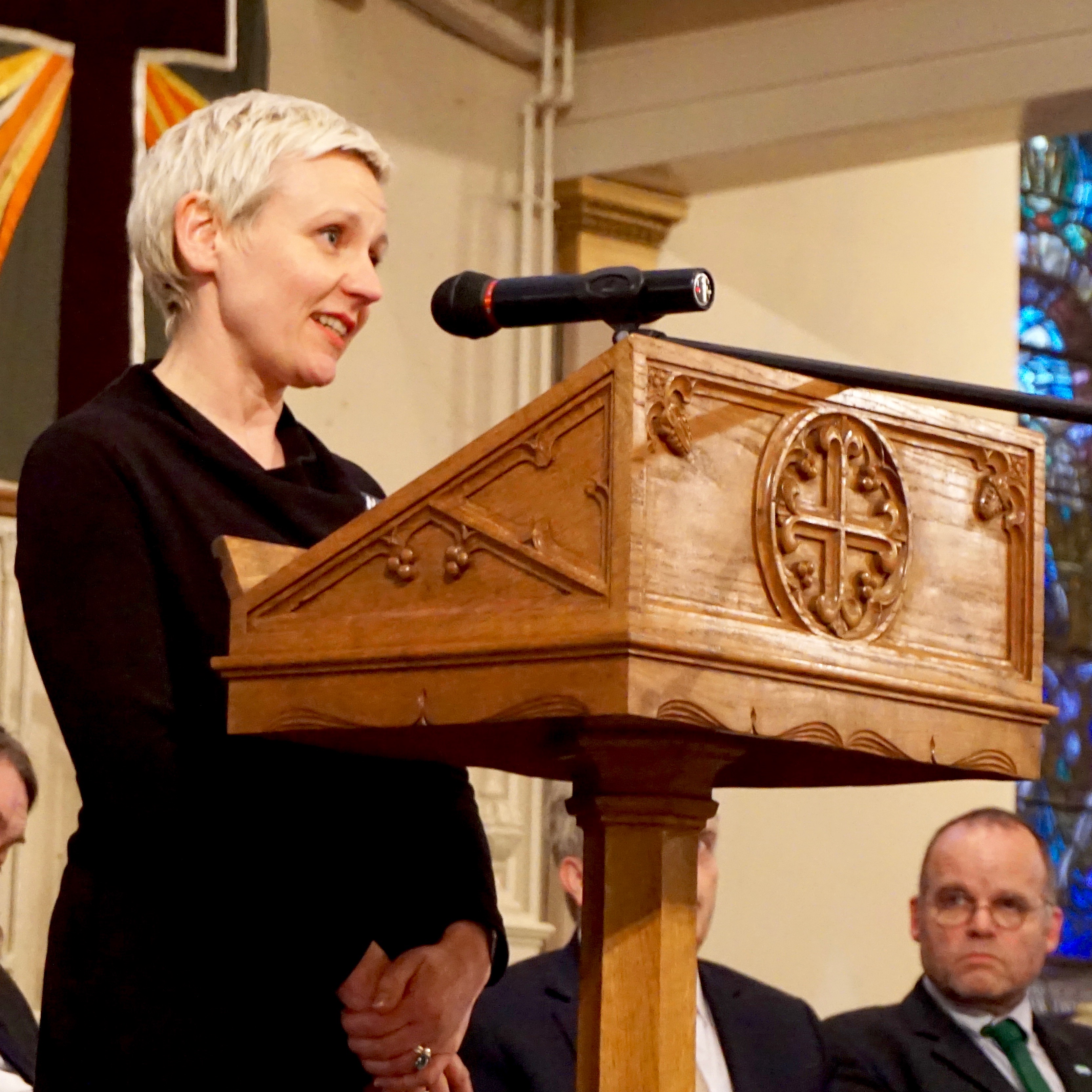
LC: I have no idea what I’d do. I find chain shops dull, and they push out independents. But I do like them for convenience. I suppose I’d consult with other parties before reaching a decision.
IM: I’m concerned at their proliferation, but don’t forget the spread of markets outside St Mary’s Cathedral and down in Leith. On a broader scale, I want local authorities to make the final decision on planning issues, not Holyrood.
BM: I was active on the campaign to save 1–6 Canonmill’s Bridge. SNP’s Small Business Bonus scheme, Community Empowerment Act and Land Reform Bill have all addressed these areas, and we have recently completed a major consultation on the planning system. As an individual, I want a democratic planning system which enhances equality and preserves green spaces.
MV: That’s a tough question – I’d need to go away and look it up. However, supermarkets do have a role, and comparatively isolated communities often welcome them as they’re cheaper than small shops. On the other hand, small shops can often beat supermarkets on quality.
AM: I agree that supermarkets have a role. And the truth is, we vote with our feet. UKIP favours introducing free parking in city centres to encourage small business. And we would like to introduce local referenda on planning questions, with decisions binding on local authorities. Supermarkets and chains often deliberately run at a loss to put local competition out of business.
LH: Supermarkets do force out independents. Current planning system is flawed, e.g. councillors’ 100% rejection of Canonmills proposal which was overturned on appeal. We all have the power to support small independent shops ... use them or lose them. [Applause]
JC: Supermarkets have an important and positive role. They provide jobs, and competition between them on Leith Walk is driving down prices. However, am in favour of local-authority support for retail balance in local communities.
AW: Am in favour of third-party right of appeal. Food politics are central to Green policy.
CM: Planning permission must reflect community priorities, not those of business. Too many politicians are deep, deep, deep in the pockets of business. Too many big companies don’t pay enough taxes or good wages. [Applause]
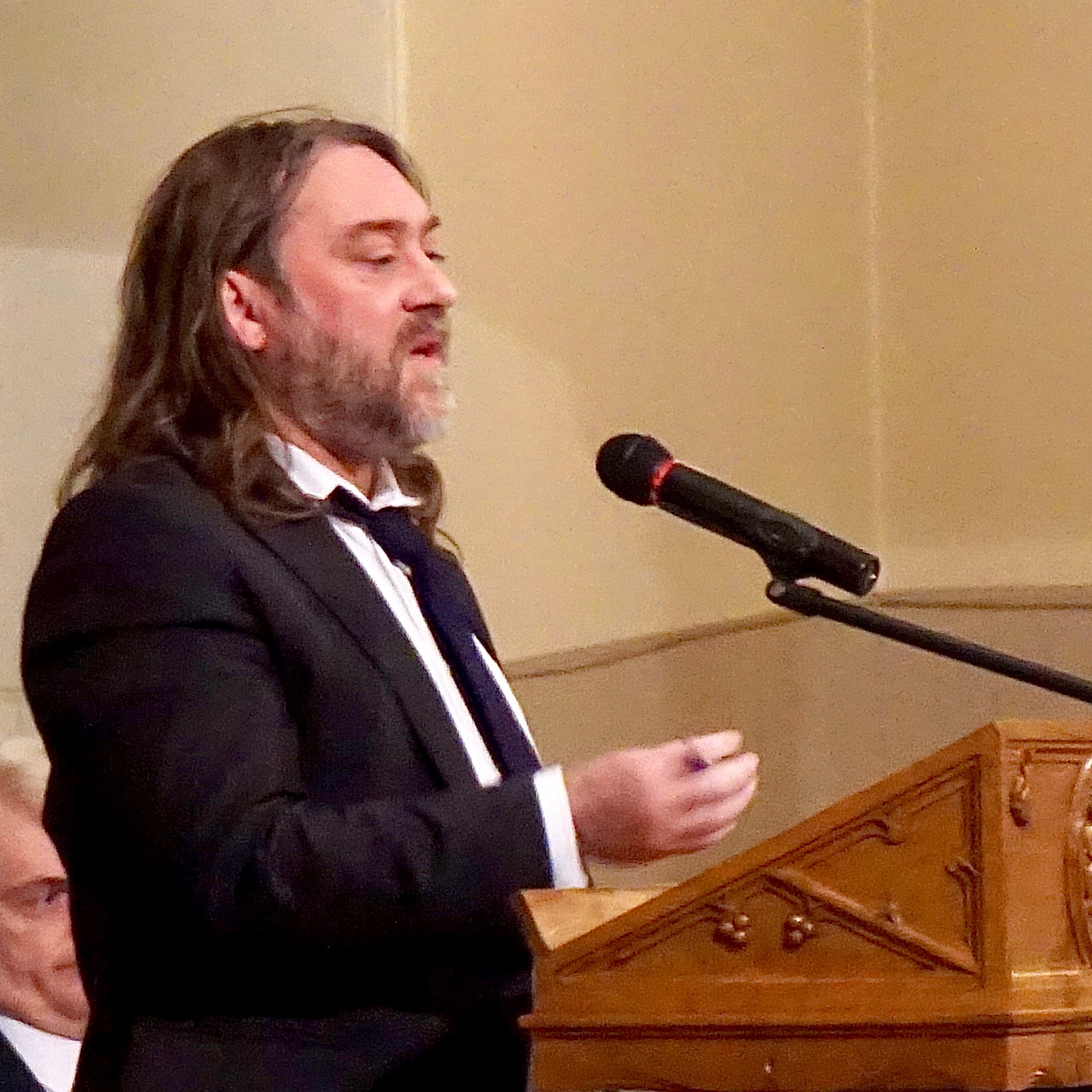
AM: SNP is already saving energy by closing down steel, ceramic and aluminium plants. Renewables won’t keep the lights on: would require a windfarm the size of Fife just to replace one power station. Environmentalists are destroying the economy and the country.
IM: By not putting all our eggs in one basket. By not giving in to arguments based on non-scientific hysteria. We need a mixed basket of renewables, non-conventional gas, and nuclear.
CM: Fracking – no! Poisoning our water is no better than Nuclear poisoning of our soil. Our future should lie in long-term investment in sustainable, clean, renewable sources. [Applause]
AW: Complete renewable dependence is possible by 2050, through investing in a Europe-wide supergrid. (Say yes to Remain in Europe on 23 June.) No fracking. No fossil fuels.
LH: Use renewables at local and individual levels. Tackle fuel poverty by setting up a City of Edinburgh Council energy company which reinvests profits in local services. No to fracking. [Applause]
LC: Would look at gender implications for jobs created in renewable energy industries. Personally: against nuclear and fracking.
MV: Having considered the scientific evidence, Liberal Democrats voted to lift the moratorium on fracking. Urgent need to address a shortfall in energy availability.
BM: This is a key issue for the next parliament. Scotland is rich in renewable sources of energy. Must resist UK Government’s cuts to reseach and development in this sector.
JC: Am in favour of job creation by extending renewables, but this will require being supplemented by nuclear energy. Am against fracking and offshore oil. We need genuine competition between energy companies.
[Photography by Rhys Fullerton]
Update (16.4.16): At the candidate's polite prompting, and in line with our undertaking in the introduction above, corrections have been made to Ben Macpherson's responses to Questions 2, 3, 5.
Update (21.4.16): At last week's event there were more questions than time for answers. We asked candidates for written responses before 5 May, which appear here as and when they arrive.
-----------
Got a view? Tell us at
spurtle@hotmail.co.uk and @theSpurtle and Facebook
-----------------------------------
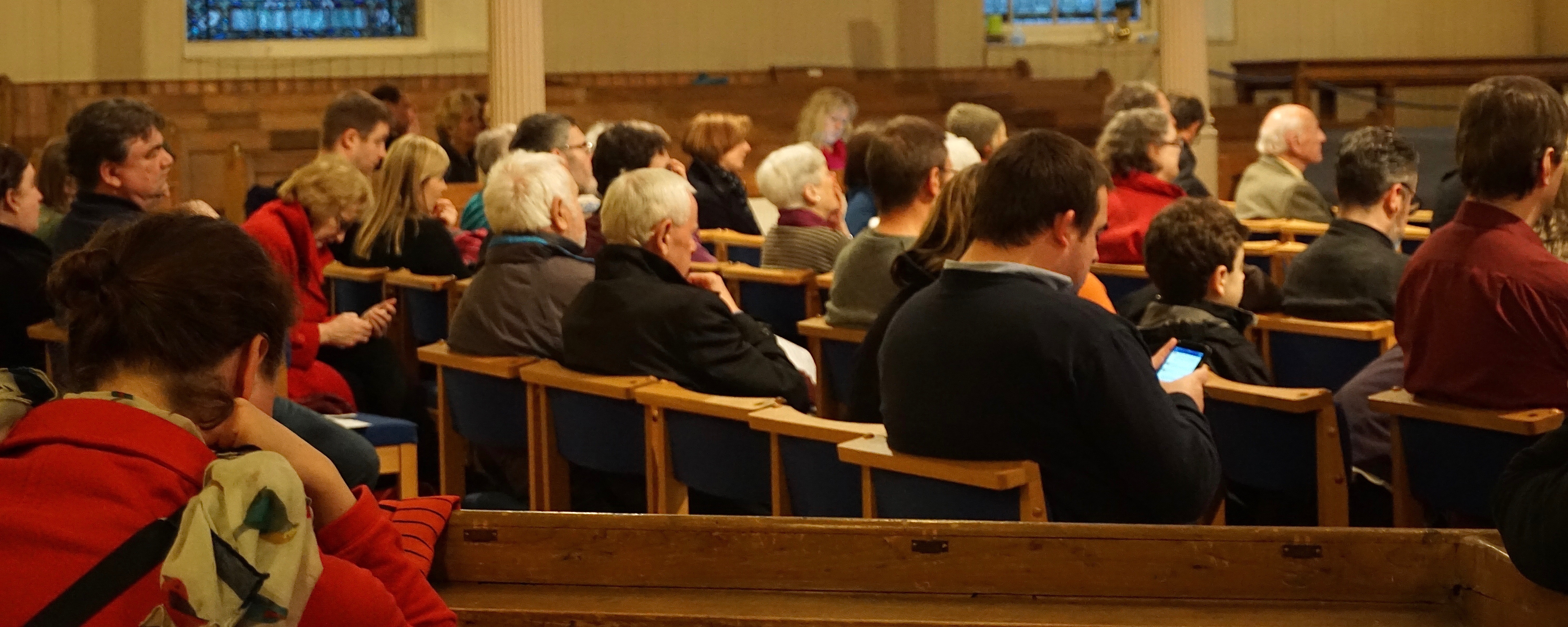
 Patrick Hadfield Whilst it was very well attended and the audience were attentive, I thought we were much too polite! No heckling at all! Some of the things Ben Macpherson, the SNP candidate, said were laughable coming from SNP ("I’m in favour of constructive politics, not knocking others" and "...I accept that Police Scotland needs to work harder on local accountability"!)
Patrick Hadfield Whilst it was very well attended and the audience were attentive, I thought we were much too polite! No heckling at all! Some of the things Ben Macpherson, the SNP candidate, said were laughable coming from SNP ("I’m in favour of constructive politics, not knocking others" and "...I accept that Police Scotland needs to work harder on local accountability"!)